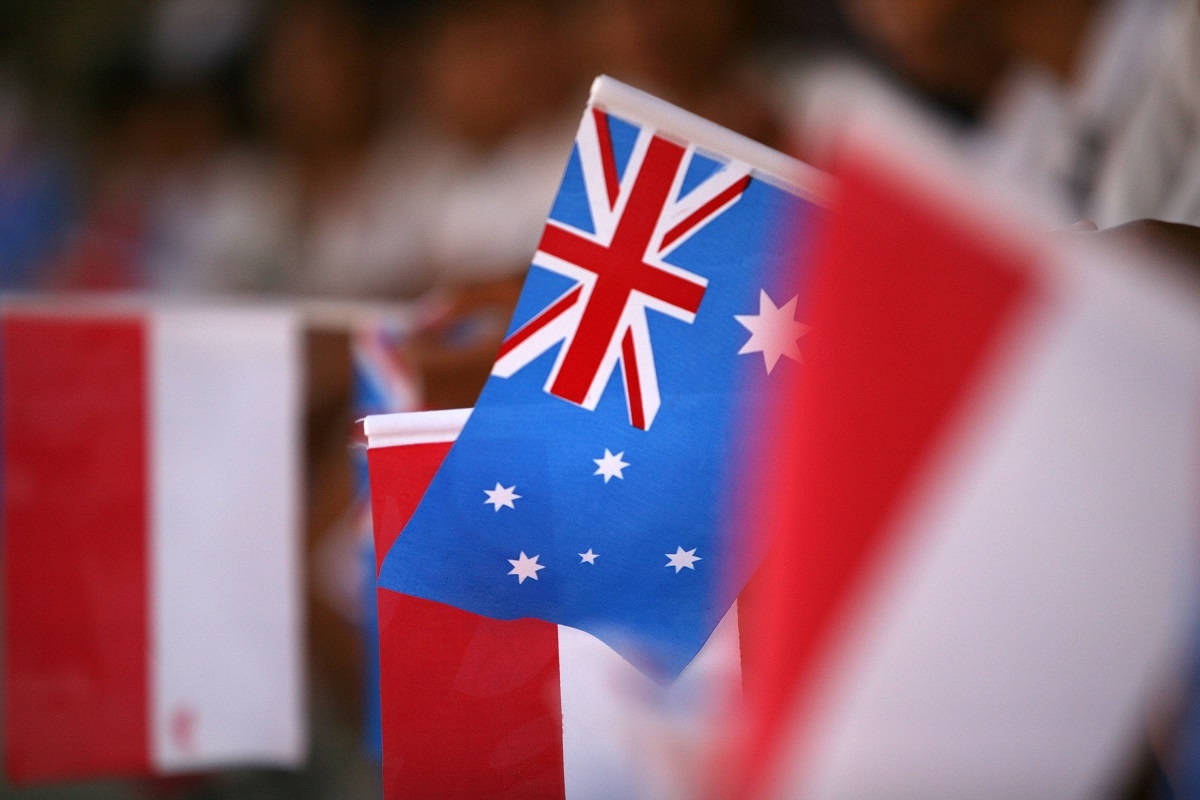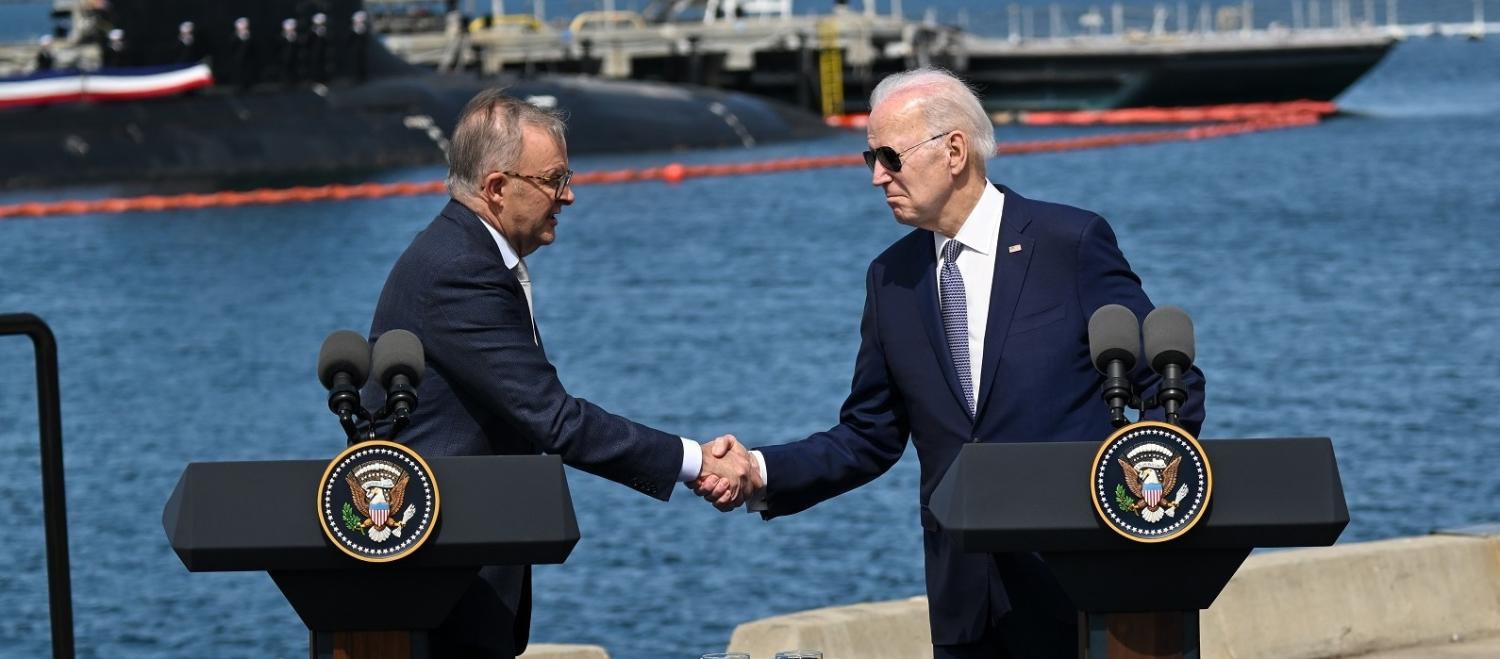Book review: The Echidna Strategy: Australia's Search for Power and Peace (La Trobe University Press, 2023)
When Robert Menzies announced his retirement in January 1966, he said his greatest achievement was ANZUS. Part of the reason for his pride was the essential nature of ANZUS for Australian security. Australia needed “great and powerful friends” given its distance and less than friendly neighbourhood, and the strategic vulnerability of such a vast continent. ANZUS had also arisen after Australia had been abandoned by its original great and powerful friend, Britain, with the Fall of Singapore in 1942 and then Britain’s turn to Europe and attempts to enter the European Common Market throughout the 1960s.
Sam Roggeveen’s provocative book, The Echidna Strategy, offers a challenge to the orthodoxy that ANZUS is essential, and argues its most recent evolution in the form of AUKUS – the trilateral security pact between Australia, the United Kingdom and the United States – is dangerous for Australia. Roggeveen’s diagnosis and prescriptions might be wrong, but for an engaging and well-argued thesis on the state of American power and interest in the Indo-Pacific, and how Australia might navigate a region where China is preeminent, he poses important questions that anyone with an interest in Australian foreign and defence policy must consider.
Roggeveen knows his thesis is heresy to China hawks and the defence and foreign policy establishment in Australia more broadly. Presumably to avoid being too quickly dismissed as a far-left anti-Alliance fringe dweller, Roggeveen starts his book with some ideological positioning that he is a “liberal conservative”. I found this unnecessary and slightly defensive. Roggeveen is a smart, experienced analyst and serious people will read his book to be challenged rather than reassured of their own deeply held set of opinions.

Ideology aside, Roggeveen is a self-professed disciple of leading Australian strategic thinker Hugh White, which gives away where much of his thesis will go. He explains in persuasive detail the inevitability of US decline in our region as the leading strategic power and consequently the irrefutable rise of China as the preeminent Asian power. Roggeveen recognises that despite a polarised domestic political environment within the United States, the one thing on which there is bipartisan support is China and that the US foreign and defence policy establishment talk in reassuring terms about ongoing US commitment to the Indo-Pacific. However, he argues that on any set of matrices, the United States does not benefit by spilling further blood and treasure in Asia by continuing to assert its dominance over China and that, if pushed, the United States would lack resolve.
There is reason to be concerned about the level of US resolve in, for example, a confrontation with China over Taiwan in the decades to come, or whether the United States would come to Australia’s aid if attacked. But Roggeveen is unequivocal about a rising China, dismissing many of the major hurdles it must overcome on the way. He quickly dismisses the fact that China will get old before it gets rich and that its economic indicators are sluggish, each factors that stymied its neighbour Japan’s ambition to be a great power. Why would it be so different for China? He also overlooks the importance of India to the region and how its own ambitions might temper China’s. Roggeveen’s book sees the region as bipolar, and the blind spots such as India leave his thesis wanting.
Roggeveen’s echidna strategy is modelled on Taiwan’s porcupine strategy and Singapore’s poisonous shrimp defence posture, where an attack on Australia would be painful for those who dared, but that Australia’s natural defence posture would not be perceived as aggressive or threatening. The issue with this analogy is that Australia, a vast continent with huge natural resources, is clearly no Taiwan or Singapore. Defence of Australia requires a different set of considerations than those of a small island or city state, which is why AUKUS makes a lot of sense. But Roggeveen rejects AUKUS as too expensive (think of the schools and hospitals that could be built instead), unnecessary for the defence of Australia and thus provocative to China.
Aside from dumping AUKUS, Roggeveen makes some useful suggestions for Australian statecraft in the years ahead. The first is closer ties, or even a quasi-alliance, with Indonesia, while the second is a Pacific Union.
The idea for a Pacific Union isn’t new. The Howard government tried this in the early 2000s but didn’t get very far. It makes sense for several reasons but has some obvious challenges. The Pacific is where Australia’s security interests are most pressing. The prospect of China establishing military bases in the Pacific would be catastrophic for Australia and must be avoided at all costs. It’s in the interests of Pacific Island countries to play Australia and China off against each other; a bidding war benefits them more than unambiguous preference for one over the other. But it is imperative that Australia remain the development partner of choice for the Pacific. This should be relatively easy to achieve if Australia can offer an irresistible carrot in the form of an economic and political union. There are of course major challenges to this, particularly when considering how to manage the free movement of people with countries such as Papua New Guinea, which struggles with high rates of crime and an unknown population, but overcoming these obstacles creates an opportunity that would be hard to resist and even harder for China to match.
On the issue of a quasi-alliance with Indonesia, Roggeveen has largely ignored the Lombok Security Treaty signed in 2006, which provides a framework for defence and security cooperation between Australia and Indonesia. While Roggeveen suggests an alliance with Indonesia would have to be based on shared interests, not shared values as that would seem too US-centric, the Lombok Treaty recognises that “both Parties are democratic, dynamic and outward-looking members of the region”. That said, it would be good to see this treaty used more energetically to shore up the balance of power in maritime Southeast Asia.
Given the lead-up to AUKUS was incredibly quick and the announcement took most experts and commentators by surprise, the debate about the pact has understandably come after the fact. That said, it is still a debate worth having. Roggeveen’s contribution to this debate is a worthy one.

